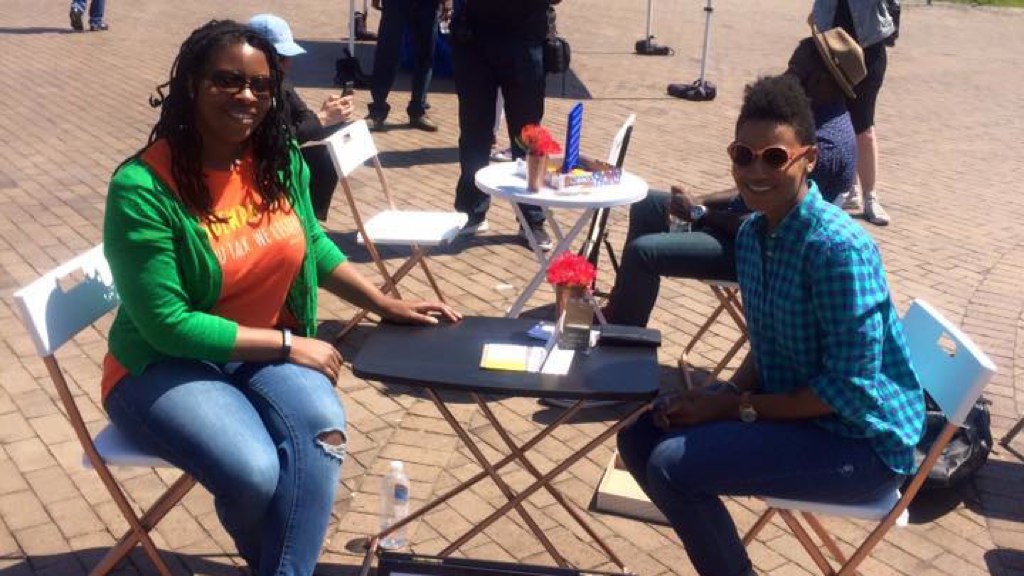A San Francisco-based project has made its way to Washington and wants to serve the community by offering a listening ear to anyone wanting to talk. And with May marking the 67th year of Mental Health Awareness month, Esther Boykin has scheduled more “Sidewalk Talks” and listening events in DC and Virginia.
Boykin, who heard about the Sidewalk Talks through social media, met with the founders of the pop-up events in San Francisco in March and decided to bring the idea to Washington.
With tables and chairs set outside of the Eastern Market Metro station on a sunny Saturday back in April, three volunteer “listeners” (and special guest, Thomas Knox, from Date While You Wait in New York) heard an array of stories from passersby–from details of day plans to the unfortunate news about diagnoses with chronic illnesses.
“You’d be surprised what people are willing to share to a total stranger,” said Boykin, CEO of Group Therapy Associates. “Part of what Sidewalk Talk DC is trying to do is to de-stigmatize genuine human connection and mental health. Especially in this city where there’s so much going on, we spend so much time around people but not connecting.”
What surprised Boykin even more was the amount of people willing to volunteer for upcoming listening events.
“I heard about Sidewalk Talk DC through Esther, but when I saw it in practice it pulled me in to want to participate,” said Narkia Ritchie, who knew Boykin through a master’s program in Virginia Tech. “I saw community members coming, sitting down and asking questions about what was going on. The energy was high.”
Ritchie, a licensed marriage and family therapist, will volunteer as a listener during the Sidewalk Talks on May 15 and 27. A training video for volunteers shows listeners how to engage those who want to talk while respecting and acknowledging boundaries.
“I hope to show that there are people out there that just listen, there’s no catch,” said Ritchie, “Maybe talkers learn to be listeners to family and friends and that you don’t have to go to therapy to walk out of a conversation and feel validated.”
CORRECTION: This article previously misspelled Narkia Ritchie’s last name.

















